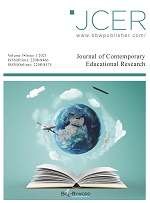Abstract
The cultural dimension of sustainability as the fourth pillar of the overall sustainable development framework encompasses both tangible and intangible cultures. In this study, tangible culture refers to the home environments of Chinese residents in China and North America, while intangible culture refers to their faiths and belief systems, in other words, their philosophy and religion, reflected (or not) in their home environments. The paper argues that Chinese philosophy and religion have historically contributed to Chinese people’s environmental ethics and their health and happiness. Set within this context, the paper presents the author’s two empirical research findings on Chinese residents’ philosophy and religion in contemporary China and North America. Quantitative and qualitative data were collected by asking Chinese residents the same research question in the 2007-2008 onsite survey and follow-up interviews in Beijing and Suzhou of China, and the 2013 online survey and follow-up interviews in the US and Canada. The findings show a significantly higher percentage of ethnic Chinese in North America holds traditional Chinese faiths than those in China, though Western cultural infiltration is also happening to them. Nevertheless, due to the limited number of participants, the findings may only be indicative.
